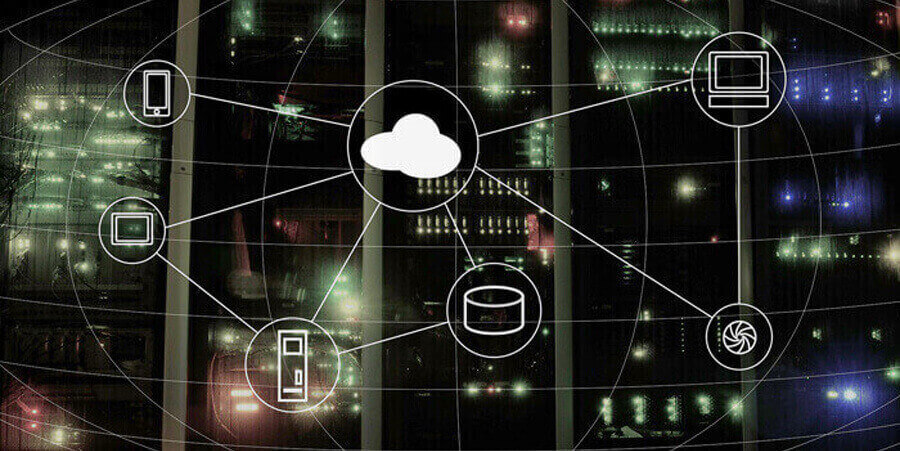Security Best Practices for Healthcare
Data security is important for any industry, but healthcare has unique needs that make security particularly critical. The need to comply with HIPAA requirements, the large amount of sensitive data that the healthcare industry handles, and the large number of security threats it faces every year all mean that any healthcare organization must implement strong protocols and best practices to keep data secure.
The following best practices outline a pathway to greater healthcare security. With the right IT support for healthcare, organizations in this industry can implement these practices and more successfully protect the sensitive data entrusted to them.
#1: Conduct risk assessments
Implementing effective data security measures begins by understanding the risks your organization faces. To that end, risk assessments are the first step in creating a secure healthcare IT infrastructure. As a proactive measure, they are also a valuable tool in preventing costly security breaches.
Regular risk assessments allow you to identify all possible security issues that might arise within your organization so you can create strategies for preventing these issues and for dealing with them should they arise. Risk assessments can also help you to pinpoint areas of weakness that you can address before data breaches occur.
#2: Create end-to-end encryption
Encryption is one of the front-line defenses against hacking and data breaches. Encrypted data is unintelligible without the encryption key. As a result, even if an unauthorized individual gains access to the data, they cannot read it or use it.
In order to keep data secure, healthcare organizations must encrypt their data both when it is in transit from one point to another and when it is at rest. End-to-end encryption protects data at all times from unauthorized access.
#3: Implement an incidence response plan
HIPAA regulations require healthcare organizations to have a plan for protecting and recovering personal health information (PHI) in the event that data is lost or breached. This incidence response plan should include backup and data recovery strategies. Often, a cloud-based storage solution can offer the security, flexibility, and support healthcare organizations need. IT support for healthcare can offer options and assist healthcare organizations with evaluating the best strategies for their needs.
#4: Manage all IoT devices
IoT devices can present a security risk if they are managed incorrectly. In order to keep them secure, healthcare organizations need to monitor all of these devices and implement security practices to ensure that the data on these devices is kept safe. Strategies may include the following:
- Inventorying all IoT devices
- Placing IoT devices on their own network
- Monitoring all IoT devices
- Removing nonessential services from IoT devices
- Implementing multi-factor authentication
#5: Automate all patches and updates
Security updates and patches are critical to the security of an IT infrastructure. However, they are also easy to overlook, particularly if you possess many devices and programs that require updates. In order to ensure that all of these updates occur on schedule, healthcare organizations should automate them to the extent possible. IT support for healthcare can also provide assistance with automating and tracking these updates to make sure they occur successfully and on schedule across all programs and devices.
#6: Compartmentalize access to sensitive data
A secure IT infrastructure does more than prevent individuals outside the organization from accessing sensitive data. It also prevents individuals inside the organization from accessing information that they do not need to complete their jobs. By compartmentalizing access so each employee only has access to the information they need, an organization can reduce the chances that of a security breach occurring.
#7: Implement ongoing employee education
Employees have an important role to play in preventing security breaches within your healthcare organization. In order to do their part, however, they must receive regular education in your organization’s security practices. Training should include the following areas:
- Information on the latest security threats and how to deal with them
- Privacy and security practices
- Organizational policies
- Identified areas of weakness
- Incidence response plan
- Mobile phone policies
- HIPAA requirements
#8: Engage outside IT support for healthcare
Maintaining data security for your healthcare organization is a challenging task. Technology, and related risks, change constantly. HIPAA requirements require layers of understanding and implementation that take time to master. The Internet of Things means that organizations must manage numerous, interconnected devices. Hacking strategies change frequently and require organizations to be constantly aware of the latest threats.
In order to successfully manage all of these moving pieces, healthcare organizations often benefit from IT support for healthcare. Bringing in outside support allows these organizations to enjoy professional, thorough assistance with creating and maintaining a secure IT infrastructure from professionals who understand the unique security needs of the healthcare field.
Implementing best practices for healthcare allows organizations to enjoy an IT infrastructure that is as secure as possible against threats and emergencies. These best practices include conducting regular risk assessments, creating end-to-end encryption, implementing an incidence response plan, managing all IoT devices, automating all patches and updates, compartmentalizing access to sensitive data, implementing ongoing employee training, and engaging outside IT support for healthcare.
With the right practices in place, healthcare organizations can enjoy greater security, peace of mind, and HIPAA compliance. If you need assistance with security for your healthcare organization, reach out to Centre Technologies. We provide a range of tailored solutions to assist the healthcare industry in keeping sensitive patient data secure.





